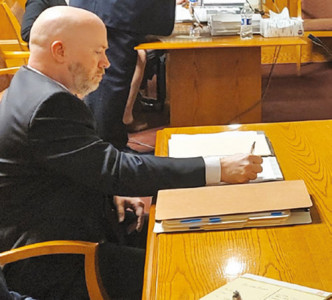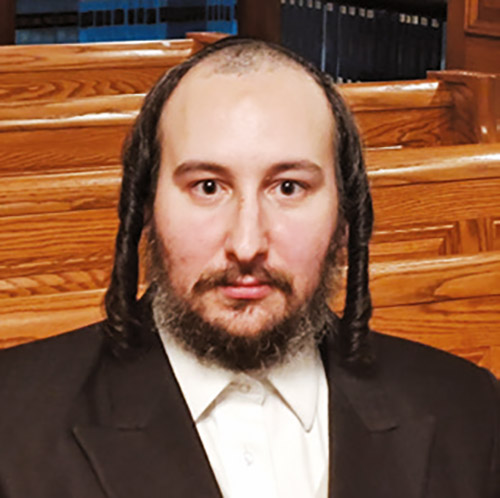
A battle royale took place last week in state Supreme Court in Albany. On the one hand, yeshiva leaders believe they are seeing the end of their unique teaching methods. On the other hand, the state education department maintains it wants more uniformity in teaching style and coursework.
The attorney for the yeshivas, representing PEARLS (Parents for Educational and Religious Liberty in Schools), Avi Schick, told Judge Christina Ryba of Albany that the regulations implemented last year by education officials, the Board of Regents, were unfair and overstepped the authority of the department.
“The regulations in total, because of the way they are constructed and because of the way they are implemented, are in excess of SED’s authority of the law,” Schick told the court. “We don’t distinguish between the core curriculum requirements that we believe exist and that have existed for a long time. We haven’t challenged those. We don’t challenge the basic obligation to make sure that each child leaves school with the competencies in the core subjects of English, math, social studies and science. What we do object to, on the other hand, Your Honor, is the way the state Education Department has constructed the regulations around those requirements. The scope and sequence does not link skills and knowledge with corresponding curriculum and instruction that was delivered.”

Schick and the school officials argued there is an overreach by the state Education Department.
“You have to gain our approval,” Schick said regarding the state Education Department dictum. “Either we will exempt you, that’s for non-yeshivas, or for the yeshivas, we’ll visit you and we’ll say it’s substantially equivalent approved or not substantially equivalent, not approved. In constructing their lists, their requirements, they arrogate to themselves the choices the parents want for their children and the parents want the school they choose to have for their children. They have no right under the law to do that.”
After a 15 minute diatribe by Schick, the state took its best aim to shoot down Schick’s arguments.
“The simple answer to this and to all of the arguments Mr. Schick just made, is that the various issues they raised are not issues with the challenged regulations. They are issues with the compulsory education law,” said William Scott, a lawyer with the state Attorney General’s office representing the state Education Department. “Standards related to language of instruction, courses that have to be taught, competency of teachers, that all comes from the education law not from these regulations. It’s a little disingenuous for a counsel challenging the adoption of a law to say that we operated too strictly within the bounds of the law as required by us over the education law. If we look at the regulation itself, when it cites these standards, it cites back to the provisions of the compulsory education law. Every nonpublic school has the same opportunity to use alternative pathways. Any nonpublic school that is unable to meet those standards has to go through the evaluation. It is a completely neutral regulation.”
Judge Ryba asked Scott: “Does it impact what language has to be taught?”
“The regulation does not,” Scott responded. “The compulsory education law does. Again, the compulsory education law dictates the language of instruction. It does not come from this regulation. The regulation itself does not single out yeshivas. It does not single out any religious organization or any nonpublic school. It is generally applicable to all nonpublic schools.”
Scott tried to persuade the judge to rule against the yeshivas, known as the petitioners.
“For all of the reasons we’ve gone through, the petitioners are unlikely to succeed on the merits but they have also failed to establish that they will suffer any irreparable harm. There is simply no evidence of irreparable harm in this case,” Scott noted. “None of the petitioners in this case have pointed to any immediate risk that … their school would be determined to provide a non-substantially public education there’s no indication that any parents’ choice of their school has been impacted. When we look at that in the greater context for the balance of the equities in the absence of any ability to meet their burden of proof, were the court to grant an injunction it would only work to undo validly enacted New York State law.”
Schick countered with how yeshivas are being harmed.
“There is irreparable harm due to religious rights; there is irreparable harm because of the change in Jewish studies which is the reason parents choose yeshivas for their children are totally discounted in this regard,” Schick said, trying to get the ball back in his court. “From the same statute [in the compulsory education law] there is one rule for homeschooled parents about covering the subjects and there is an entirely different rule [in the same statute] for yeshiva parents and yeshiva schools. That’s not allowed.”
As one might expect towards the end of a 45-minute volley, Scott attempted to thwart Schick’s argument by reminding the court that the wheels of the education system move slowly.
“On irreparable harm,” he began. “Aside from the hyperbole we just heard here as we laid forth in our brief, there is no imminent risk and no irreparable harm on the horizon here even if the regs were to take effect tomorrow. There is a long wind-up in these processes; there is a significant amount of time; there is a significant amount of engagement between the schools, the local school administrators, the state before any sort of determination is reached. State Ed didn’t get that information in and then adopted a rule for the yeshivas. They adopted a regulation that applies neutrally across all nonpublic schools. What we just heard here is not that the yeshivas are unable to go through an accreditation process or unable to go through a pathway but they are choosing not to. That is certainly their right but that doesn’t change the fact that the law itself allows them and any other nonpublic schools all to take the same paths towards substantial equivalence.”
The New York City Education Department is the local school administrators (LSAs) visiting yeshivas to make sure they are in compliance.
“This is a case where they didn’t shoot the arrow and hit a bullseye,” Schick said. “They shot the arrow and then drew the lines around it. New York City has a list of 30 schools it is visiting. Of the 30, they are all yeshivas. There are 20 schools that are being visited that are under threat of closing down that have to change their programs. The statute exists for all. The statute says teaching must be in English. It can’t be that yeshivas have a deep cultural value around Yiddish and other subjects. The primary text used in certain classes whether it’s the Talmud, whether it’s the Bible, whether it’s the Mishnah, whether it’s Prophets are in languages other than English, there are cultural reasons that they said parents want their kids to learn in languages other than English, and yet the state says that’s good for us.

“You couldn’t be a Montessori school and go through the gauntlet of these regulations,” Schick continued. “It’s just impossible. There are 450 schools with 150,000 students. It’s not monolithic. It’s not a unified system, but it is a system. There is no doubt that the course performing component of any system needs approval. I have no dispute about that. Just like the course performing component of public schools needs improvement, you work with them.”
Schick also cited an affidavit from Rabbi Chaim Dovid Zwiebel, executive vice president of Agudath Israel of America, based in Manhattan, to prove how intractable the SED, state Education Department, really is.
“Rabbi Zwiebel’s affidavit was submitted last week in which he said when he was trying to get SED to consider alternatives, consider changes, they wouldn’t engage in discussions unless he submitted to them, in writing, an opinion of counsel that those changes would not trigger additional public comment and that he agreed with that and would not assert that public comment would be triggered if these changes were made.
“SED, when they brought the regs to the Board of Regents, they said clearly we did not make any substantial revisions there is no need for public comment. The Zweibel affidavit itself is sufficient reason to say that they did not follow the process and they weren’t open,” Schick maintained.
In closing. the state made it clear they won the battle and were dismissive of Schick’s arguments.
“I think it’s perhaps helpful to look at what would occur if the court were to issue an injunction. This speaks to the lack of harm inflicted upon the petitioners by the regulation,” Scott said. “If the court were to issue an injunction, they are still required to teach courses under the language requirements contained in the compulsory education law. They are still required to teach the course laid out in the compulsory education law. LSAs are still required to conduct assessments and that’s particularly true of LSAs who have been ordered to do so in other proceedings and by other courts. The simple fact, Your Honor, is that they have not met their burden of proof on either their underlying petition or on their preliminary injunction motion. We ask that the petition be dismissed in its entirety, the PI [preliminary injunction] be denied and that a declaration be issued in favor of SED.”
During the oral arguments, the leader of the group that started the complaint process, YAFFED, was sitting in the gallery.
I would say the vast majority of the Hasidic yeshivas don’t teach math, English, geography, science, and that took me by quite a surprise when the attorney for the yeshivas said they did because they don’t,” Beatrice Weber, executive director of YAFFED told The Jewish Link after the oral arguments were over. “No one has looked at what they teach for many, many years, so the quality has gotten worse and worse over the years. Twenty years ago, the quality was a lot better.
“Unfortunately, education is a problem in this entire country. The issue is that in the yeshivas there isn’t even an attempt to teach in the Hasidic yeshivas. What we’re talking about here is oversight of those private schools that haven’t had oversight. There are some Muslim and Amish schools that are going to be impacted as well in very similar ways. To me this is a children’s rights issue and I hope the children get what they deserve.
“My son goes to YMAH, Yeshiva Mesivta Arugath Habosem in Williamsburg,” Weber continued. “My son is not getting a good education. He’s speaking well because I teach him at home. He reads English better than his teachers. He often corrects his teachers.”
A decision will most likely be handed down by the end of the month.
By Marc Gronich








